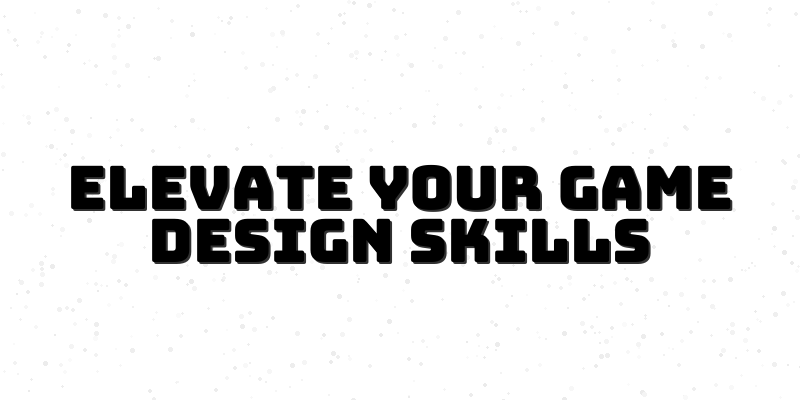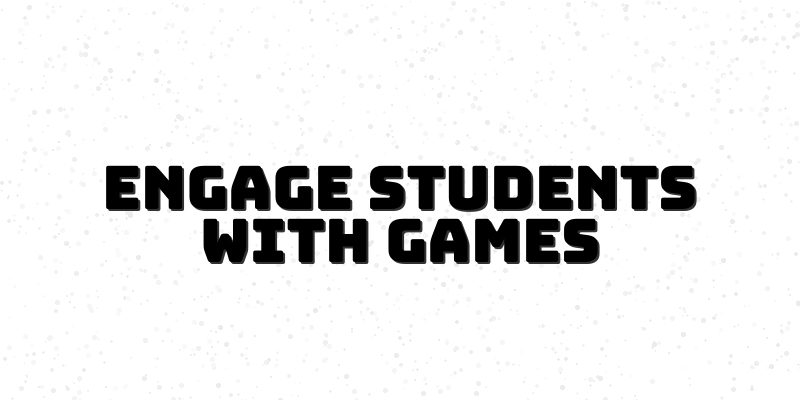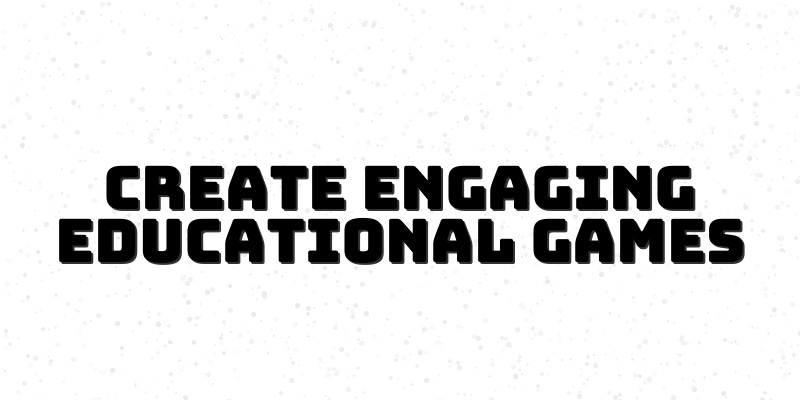Mastering Game Design Documentation: Your Guide to Success
In the world of tabletop gaming, transforming your ideas into actionable plans is critical to your success. Understanding effective game design documentation is not just a requirement; it's the keystone of developing compelling gameplay experiences that resonate with players. This article delves into the nuances of game design documentation, providing you with the knowledge and tools you need to elevate your board game design projects.
Understanding Game Design Documentation
Game design documentation serves as the backbone of any board game project. It encompasses various elements, including rules, gameplay mechanics, and visual design concepts. A well-structured game design document (GDD) is essential for keeping your project organized, ensuring smooth communication with collaborators, and facilitating effective playtesting. Ultimately, it acts as a living blueprint that guides every aspect of your game development journey.
Furthermore, a comprehensive GDD not only organizes your ideas but also serves as a valuable reference when seeking funding or partnerships. Whether you're working solo or with a team, understanding the importance of a GDD can set you on a path toward successful game creation.
The Essentials of a Game Design Document (GDD)
Creating a robust GDD involves capturing your game's core essence and translating it into written form. Key components of a GDD include:
-
Concept Overview: This section outlines your game's theme and core mechanics. Brief descriptions help clarify your game’s uniqueness and target audience.
-
Gameplay Mechanics: Detail how players will interact with the game. Include rules, turn sequences, and victory conditions to form a solid foundation for playtesting.
-
Visual and Art Direction: Art inspires curiosity and decisions. Incorporate mood boards or art styles that align with your game concept to clarify your visualization.
-
Marketing and Engagement Strategies: Address how you intend to reach your audience. This part highlights promotional strategies, community engagement, and user feedback plans.
Digital Prototyping: Breaching the Gap Between Concept and Reality
Digital prototyping is a revolutionary way to test and iterate on your game designs before finalizing them. By using software tools tailored for game design, you can easily visualize mechanics, make instant tweaks, and simulate player experiences.
Tools like Tabletop Simulator, Unity, or specific prototyping software allow designers to create digital versions of their games—easier to test, gather feedback, and engage with communities. This practice enhances your prototype's quality and ensures player engagement and satisfaction while streamlining the design process.
Moreover, the rapid feedback loop that digital prototyping offers can unearth insights that traditional methods may overlook. Decisions can be tested in real-time, allowing you to make necessary adjustments proactively.
Marketing Strategies for Your Game: From Concept to Launch
Transitioning from design to marketing requires an innovative mindset. Early-stage marketing strategies can significantly influence your game's success. Key strategies include:
-
Engaging Online Communities: Leverage platforms like Facebook groups, Reddit, and Discord to build awareness and promote discussion around your game.
-
Social Media Campaigns: Utilize Instagram and Twitter to share progress, artwork, and teasers of your game. Regular updates keep your audience intrigued.
-
Participate in Conventions: Find opportunities to showcase your prototypes at conventions or local meetups. Engaging with fellow developers and players in person offers invaluable feedback and networking opportunities.
-
Create a Strong Visual Identity: A unique and appealing visual presentation helps potential players remember your game. Invest in eye-catching art and thoughtful design that aligns with your gameplay.
Community Feedback: A Key Ingredient for Success
Playtesting should not be a one-time event; it's an ongoing process that can dramatically enhance your game's quality. Gathering feedback from diverse player groups provides a well-rounded understanding of your game’s strengths and weaknesses. This involves:
-
Organizing Playtesting Sessions: Facilitate small gatherings where participants play your game, followed by discussions about their experience. Take notes on what worked and what areas need improvement.
-
Creating Online Surveys: After playtesting, following up with a structured questionnaire can yield invaluable insights. Ask specific questions about mechanics, difficulty levels, and overall enjoyment to gather detailed input.
-
Iterate Based on Feedback: Be prepared to make difficult decisions. Not every feature will resonate with users; be flexible and willing to adapt based on community feedback, leading to a refined final product.






